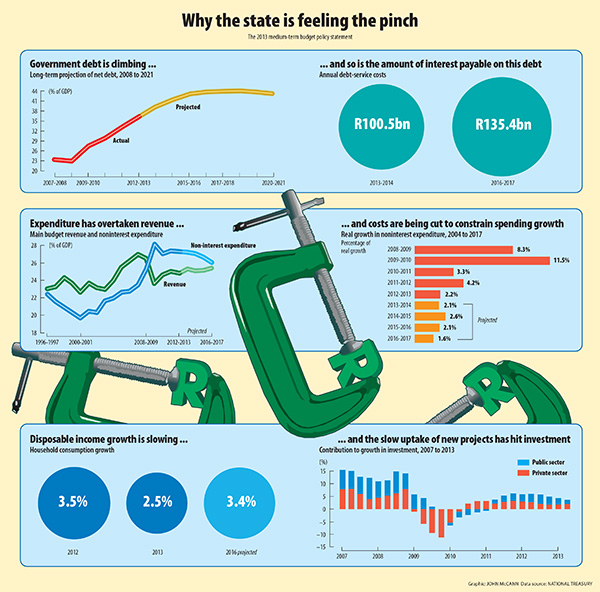 There was a time not too many days back when it seemed it was game over. BMW was quitting our strike-ravaged climes for friendlier investment regimes.
There was a time not too many days back when it seemed it was game over. BMW was quitting our strike-ravaged climes for friendlier investment regimes.
To be more precise, the motor manufacturer had decided it would not be making a particular model in South Africa, a loss of a potential 1 500 jobs.
But then, to stick knives into our raw wounds, Nissan said it would be setting up shop in Nigeria.
Nigeria grows, we founder and stagnate. It can only be a matter of time before this awakening economic giant dwarfs us.
It gets the jobs that are rightfully ours because our leaders have not been tough enough to stare organised labour in the eye until it buckles and returns to work.
A tweet this week quoted Toyota's Johan van Zyl, who said that South Africa's share of global car production is 0.64%. Is this a little or a lot?
Investing millions
It accords more or less exactly with the size of our economy as a percentage of world gross domestic product. In passing, note our economy now produces R3.4-trillion in goods and services, rising to R4-trillion in 2015.
A week or so after the body blows BMW had rained on us, Mercedes announced it was expanding its operations in South Africa, investing R3-billion in new plant.
This seems like a big number, but perhaps we should consider the biggest number of all, how much foreign direct investment (FDI) we attract annually compared to our African peers.
FDI, if you don't know, is the real stuff. It's bricks and mortar, not the potentially flighty stock market investment that can leave as quickly as it arrived.
fDi Markets, a Financial Times publication, has done the numbers and finds that South Africa significantly outperforms the rest of the continent on this measure.
We attracted FDI of $4.65-billion during 2012, more than twice that of the next highest, Morocco.
Rankings
Depending on how jingoistic you are and how threatened you feel by Nigeria, you may be interested to know that it ranked a dismal seventh, just ahead of Botswana.
We rank as the 16th top FDI destination globally. But then, depending on who is counting and when, we score somewhere between 16th and 18th globally in terms of the size of our economy. This would have to be the case: we are a member of the G20, remember.
In fact, we are a pretty impressive investor in Africa in our own right. EY (formerly known as Ernst & Young) figures for 2012 show South Africa invested $1.4-billion into the rest of the continent.
We were the biggest investor in Africa in terms of the number projects – 75 – although we were outplayed in value terms by India, the United States, the United Kingdom, Canada and China.
We have been boosting the FDI numbers of countries that notionally, at least, appear to be our competitors. And, as the Mail & Guardian reported earlier in the year, our government – in the form of the department of trade and industry – has been actively encouraging Nigeria to set up its own car manufacturing operations on a model similar to ours.
The thinking is that all kinds of synergistic benefits would accrue, such as Nigeria sourcing some of its components from South Africa.
A good place for capital
We are a good place to raise capital. The recent World Economic Forum report on competitiveness has been widely quoted, mostly on measures where we did not do well.
Less noted is that we are rated by the WEF as the second best for financing markets worldwide to raise capital.
The JSE's John Burke said: "South Africa has access to deep pools of capital, both from our well-developed local investment community and high participation of foreign investors."
Commodity giant Glencore Xstrata decided to take up a secondary listing on the JSE because it sees us as such a favourable place to raise capital.
But none of this is to suggest that we can't, and shouldn't, do better. Finance Minister Pravin Gordhan said as much this week in his medium-term budget statement. We have to do more with less.
The Cabinet agreed just before the speech that it and other government leaders will show the way by cutting excess, while public servants have to concentrate on earning their salaries. Efficiency is in, waste out.